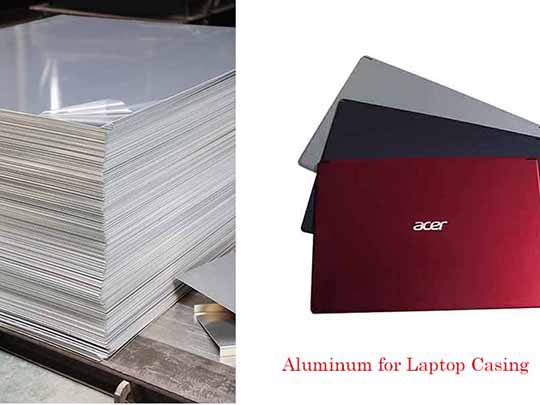Introduction
When it comes to designing sleek and durable laptops, manufacturers turn to aluminum alloys for their casing construction. Aluminum alloys offer the perfect balance of lightweight design, strength, and aesthetics that modern laptops demand. In this guide, we'll explore the key aluminum alloys used for laptop casings, helping you understand which alloy might be the best fit for your laptop's design and performance needs.
1. Aluminum 5052: The Versatile Choice
Aluminum 5052 is a popular choice for laptop casings due to its exceptional versatility. This alloy boasts good corrosion resistance and formability, making it perfect for casings that require intricate shaping and design. Whether you're aiming for a slim profile or a unique form factor, Aluminum 5052 can be easily molded to fit your vision.
2. Aluminum 6061: The Perfect Balance
Known for its remarkable blend of strength, weight, and machinability, Aluminum 6061 is a go-to alloy for laptop casings. If you're seeking a laptop that's both robust and lightweight, this alloy delivers. Its machinability also allows for precision engineering, ensuring your laptop's casing is crafted to the finest detail.
3. Aluminum 6063: Shaping the Future
For laptop casings with intricate shapes and profiles, Aluminum 6063 is a top contender. This alloy is prized for its exceptional extrudability, making it an ideal choice when your laptop's design demands more than the conventional. Craft a laptop that stands out from the crowd with the versatility of Aluminum 6063.
4. Aluminum 7000 Series: Uncompromising Strength
When strength is a priority, the Aluminum 7000 series, such as alloy 7075, steps up to the plate. These alloys offer a high strength-to-weight ratio, ensuring your laptop can withstand the rigors of daily use while remaining lightweight and portable. While they might entail slightly higher production costs, the durability they provide is well worth the investment.
5. Aluminum 3000 Series: Form and Function
Alloys like 3003 and 3004 from the Aluminum 3000 series strike a balance between strength and formability. If you're aiming for a laptop casing that is both aesthetically pleasing and functional, these alloys offer the best of both worlds. Create a laptop that not only looks good but also performs exceptionally well.
Conclusion
Selecting the right aluminum alloy for your laptop casing is a critical decision that influences the laptop's overall design, strength, and performance. Whether you prioritize versatility, strength, formability, or a combination of these factors, there's an aluminum alloy that meets your requirements. Consider collaborating with experienced material engineers and manufacturers to make an informed choice that aligns with your laptop's vision.
When in doubt, consult industry sources or reach out to laptop manufacturers for the latest insights on aluminum alloys and their applications in laptop casings. With the right alloy in hand, you're one step closer to crafting a laptop that seamlessly combines style and functionality for an outstanding user experience.
